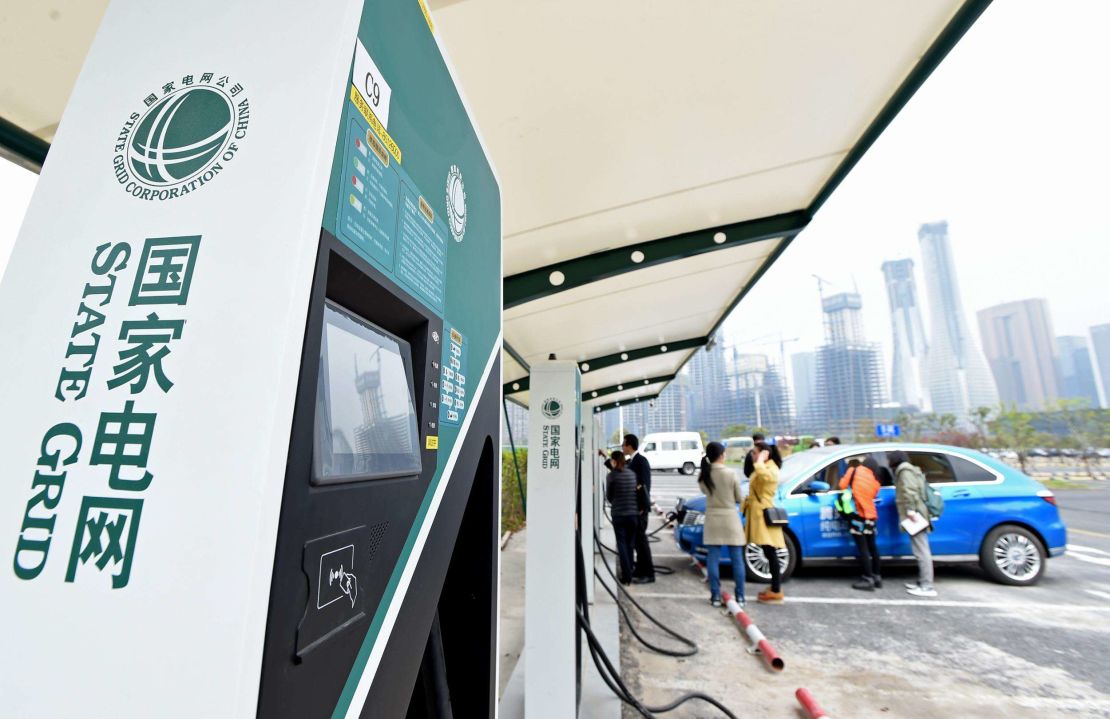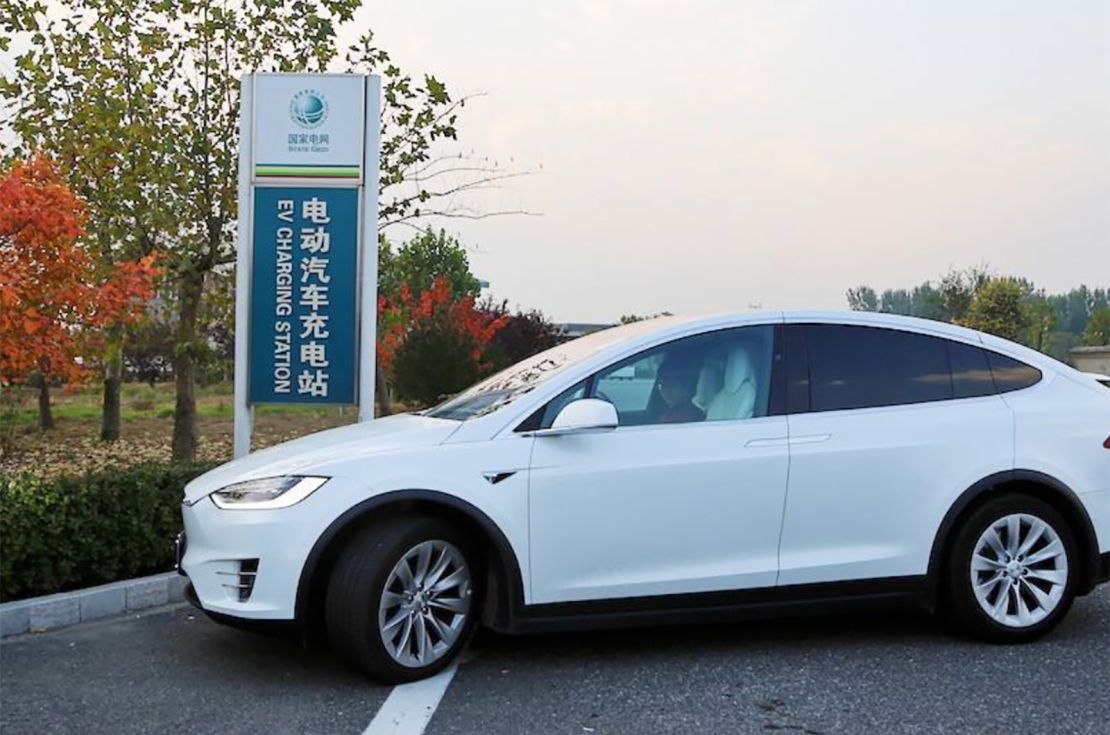Didi Chuxing, China’s top ride-hailing app, has teamed up with the country’s giant power utility to make it easier and cheaper for drivers to recharge their cars.
The deal connects Didi users to the State Grid’s network of some 50,000 electric vehicle charging stations throughout the country.
Didi is hoping to make life easier for its tens of millions of drivers, while making it more attractive for other car owners to join its platform.
State Grid is the biggest operator of electric vehicle charging points in China, with plans to more than double its footprint by the end of next year.
Its deal with Didi will allow drivers to easily find those stations, and plug in their vehicles at a discount starting next month, the startup said in a statement last week.

Didi, which first started as a competitor to Uber (UBER) in 2012, has increasingly diversified its business in recent years, partnering with automakers to develop connected car technology and even creating a spin-off app solely for auto services.
Those services include car trading and auto repair, which allows people to buy vehicles and get them fixed at cheaper rates, without being a registered Didi driver.
By integrating different features, the company aims to create a one-stop shop for car owners in the world’s biggest auto market, which in turn could help its ride-hailing network, executives say.
That could pay off big time. The Chinese auto services sector is “a large market that [hasn’t] been deeply digitally transformed,” said Yu Xue, an internet research manager at IDC China.
Didi’s latest move is “a key step” to explore the space and branch out from its flagship operations, he added.

Didi claims it’s the largest electric vehicle operator globally, with more than 400,000 on its platform “through partnerships with drivers, fleets, major EV manufacturers and operators at home and abroad.”
The company says its trove of data on the 31 million drivers registered on its network allows it to spot key traffic patterns that can help improve mobility in Chinese cities by identifying where to add new electric vehicle charging stations.

























